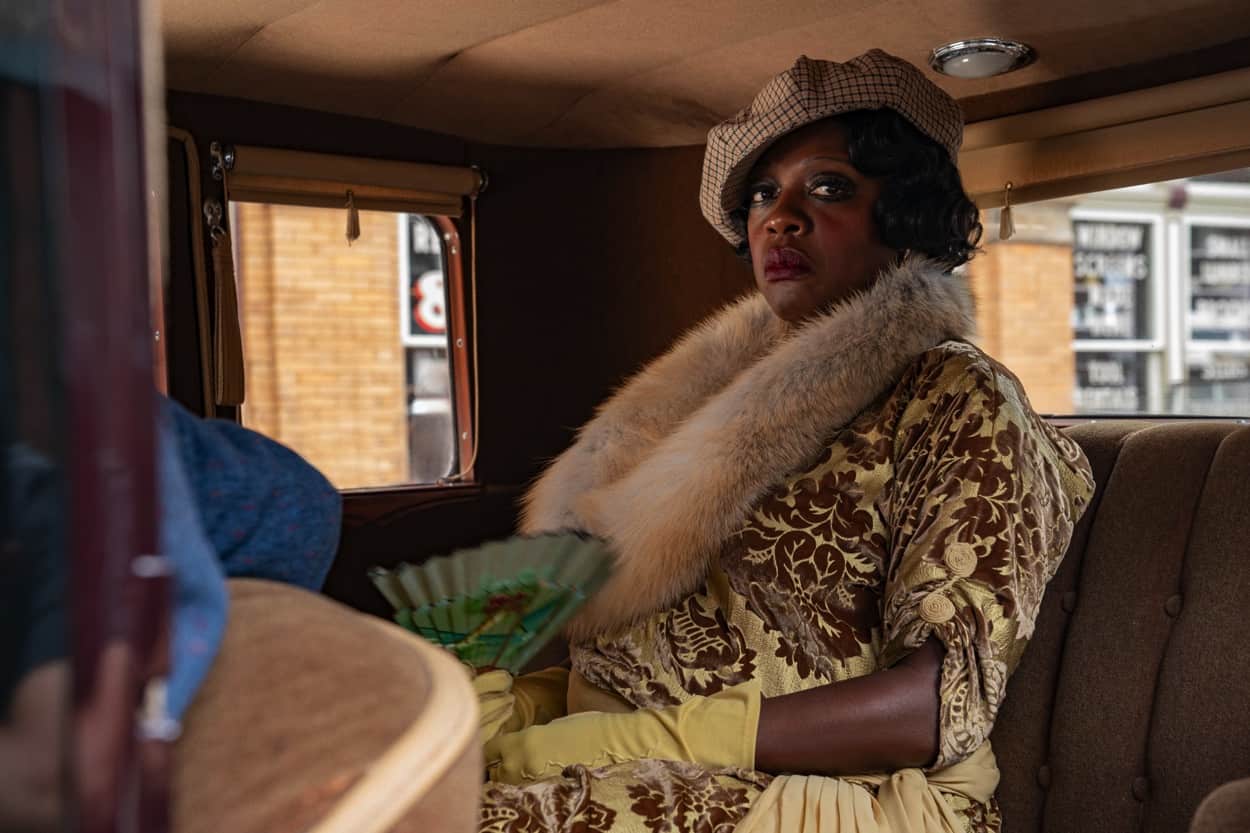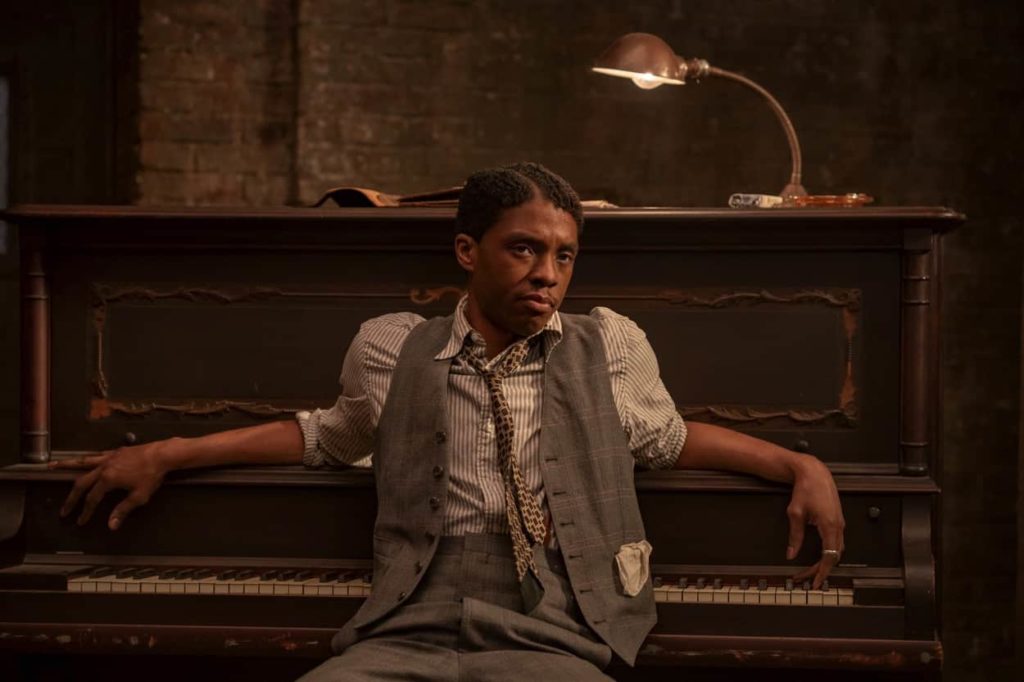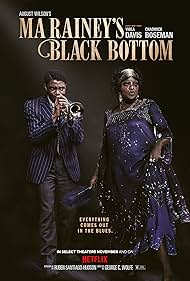Black Panther and Da 5 Bloods star Chadwick Boseman died 12 days after shooting wrapped on Ma Rainey’s Black Bottom, a fact that colours its critical reception. No one on set even knew that this firecracker performer was ill, let alone that he was being treated for stage four cancer.
Put another way, the film isn’t quite as great as some people say – a good film, a fine film, well acted, snappily directed for sure – but hobbled by its forked construction. Is it actually about Ma Rainey (Viola Davis), or her cocky trumpeter Levee, played by Boseman?
The other fact is that excellent though Boseman is, so are all the other guys who play his fellow bandmates. But Viola Davis is better than them all, and so much better that every time she opens her mouth you realise how much you want the film to be just all about her, not him, or them, or anyone else.
The plot is slender – Ma Rainey, the “queen of the blues”, is recording some songs at a studio owned by a white guy, Sturdyvant (Jonny Coyne), who wants the goods but doesn’t really want to put up with the notoriously difficult Ma.
Waiting for Ma to show up, the band shoot the breeze, a lot of it about the situation of the black man in 1920s USA, especially vis a vis the white man. Take the knocks (and possibly get called an Uncle Tom) or rail against them (and get the “uppity nigger” treatment) are what it boils down to – and yes, that word is used, liberally. The band members are all for fitting in and rolling with the punches, but Levee (Boseman) wants to do his own thing, write his own songs, front his own band. He’s greedy to have it all, and since he’s younger and more talented than they are, why not?
Included on his wish list is Ma’s girl Dussie Mae (Taylour Paige), and given that Ma already has Levee in her sights because of his attempts to upstage her, and because he wants the music to go in a fresher direction, a clash is obviously coming.
Shot in olde-worlde sepia (yuk), it’s an adaptation of an August Wilson play that seems happy to leave things stagey, the better, perhaps, to focus on performances (Boseman included) of a high calibre and a you-speak-then-I-speak theatricality.
Splay-legged, panda-eyed and glistening with sweat, Viola Davis kicks everyone into the shade as Ma, a bulldog hollerer who wears her “queen” crown lightly – she knows she’s standing on the shoulders of giants – but insists all the same on being treated with dignity, not least because white guys especially don’t need any sort of invitation to do otherwise.
She’s not even in the film that much, in terms of scenes or line count, but her presence is felt even when she’s not there. And it’s Ma Rainey’s Black Bottom, not Trumpeter Levee’s.
The black bottom dance – a variation on the Charleston – is one of those black things that white people went crazy for too, and sets the stage for a discussion of “cultural appropriation”, which August Wilson deals with briskly – fess up (as Ma does when she talks about working a tradition once “owned” by others) or don’t (chiselling Sturdyvant is buying music cheap off black musicians for white musicians to play).
Ma Rainey ’s Black Bottom is the second adaptation of an August Wilson play to be to be produced by Denzel Washington. Fences was the first, and at the time it kicked off a nine-picture deal with HBO. Since then the deal has shipped over to Netflix. No idea why. Perhaps the staginess just didn’t do it for HBO, like it didn’t do it for me.
© Steve Morrissey 2021


